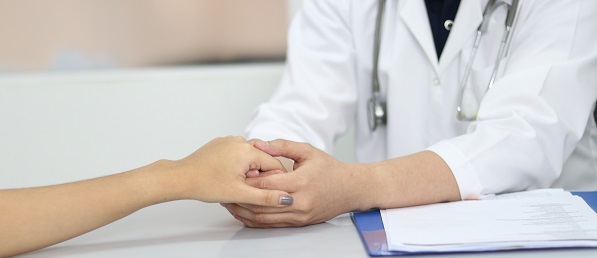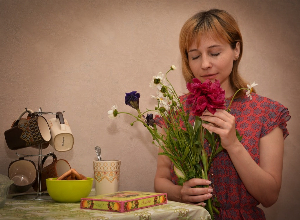Telemedicine: Remote examinations and operations are here!
Published Mar 11, 2019 • By Louise Bollecker

Telemedicine has gone way beyond conference calls: new technologies allow doctors to monitor blood pressure and other vital signs - even, take x-rays - and assist with operations from miles away.

Wireless technology is moving "healthcare outside of clinics and hospitals", said Pamela Spence, health sciences market leader at Ernst & Young, at the Mobile World Congress trade fair in Barcelona. And that is making it easier to provide healthcare in remote areas, she added.
Mobile technology for health
Participants at the mobile industry's biggest annual global event discussed how telemedicine is doing more than just connecting doctors and patients over a video or voice call. A telemedicine cabin developed by French firm Health for Humanity (H4D) allows a doctor hundreds of miles away from a patient to measure pulse rate, temperature, and blood oxygen level. The cabin, dubbed the Consult Station, is also equipped with tools that allow a doctor to perform X-rays and hearing tests.
Train physicians in these practices
Dozens of Consult Stations have been put up in France, Italy and Portugal; H4D is also carrying out pilot projects in Canada, the United States, the Philippines and Dubai. But training doctors on how to carry out a clinical exam remotely is "crucial" to the success of the service, said HD4 founder and president Franck Baudino. They have to learn how to guide the patient through the process. Doctors were initially wary of the idea of telemedicine cabins when the company was founded in 2008, but have since warmed up to the idea, he added. "Ten years ago people looked at me as if I were an alien," said Baudino, a French doctor who worked in remote African communities. "Today people still think we are avant-garde but the big difference is that 10 years ago we were talking about the future, today it is systems that are already being used."
A technology that has proven its worth
Market research firm Forrester predicts there will be more virtual visits to healthcare providers in the United States than in-person visits by the end of 2020. "Up until this point there has been relatively slow growth in the telemedicine market," said Jeff Becker, a health care IT expert at Forrester. "We do think it has proven itself in these early years and that we are going to see broad adoption."
The arrival of blazing fast 5G wireless networks, which telecoms operators are starting to roll out, opens up new possibilities for telemedicine -- such as surgeries performed by remotely controlled robots. Spanish doctor Antonio de Lacy carried out the world's first 5G-power telemonitored operation on Wednesday from the Barcelona trade fair grounds. He provided real-time guidance via a 5G video link to a surgical team operating on a patient with an intestinal tumor about three miles away at the Hospital Clinic.
"This is a first step to achieve our dream, which is to make remote operations in the near future," said de Lacy. Doctors have performed surgeries in the past using wireless networks. What 5G does is increase image quality and definition, crucial for medical teams to take decisions with as much information as possible and reduce the risk of mistakes. This next-level cellular networks also greatly reduces latency - the time it takes to get a response to information sent - of wireless networks. That means images and data are relayed almost instantly.
Necessary solutions for medical deserts around the world
Telemedicine could be especially important in developing nations. Gifted Mom, a text-messaging service and app, gives women in out-of-the way rural communities across Cameroon free health advice from doctors. By 2020, it expects to reduce the number of women who die during childbirth in the African country by at least 70 percent. Even if many patients are still more comfortable being treated face-to-face, the use of telemedicine will "definitely" continue, said Michael Barnett, a professor at the Harvard T.H. Chan School of Public Health in Boston who has studied the new techniques. "The question is where will it plateau," he added. "Use is still pretty uncommon, so it still has plenty of room to grow."
What do you think of these solutions/Telemedicine?
Would you agree to be operated on remotely?
Have you ever tried teleconsultation?
Carenity
11 comments
You will also like

What are the dangers associated with the over-the-counter sale of certain medicines?
Dec 19, 2020 • 6 comments

 Facebook
Facebook Twitter
Twitter





